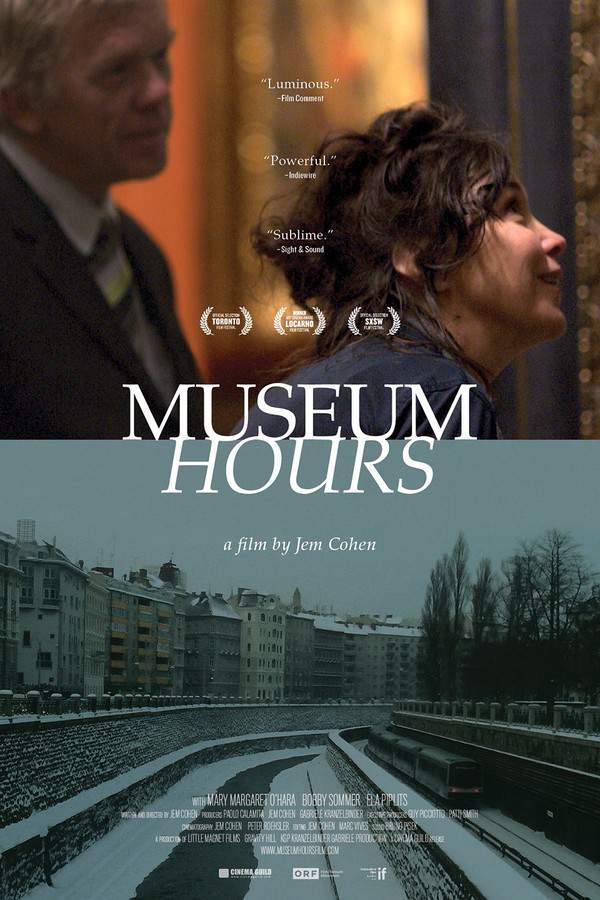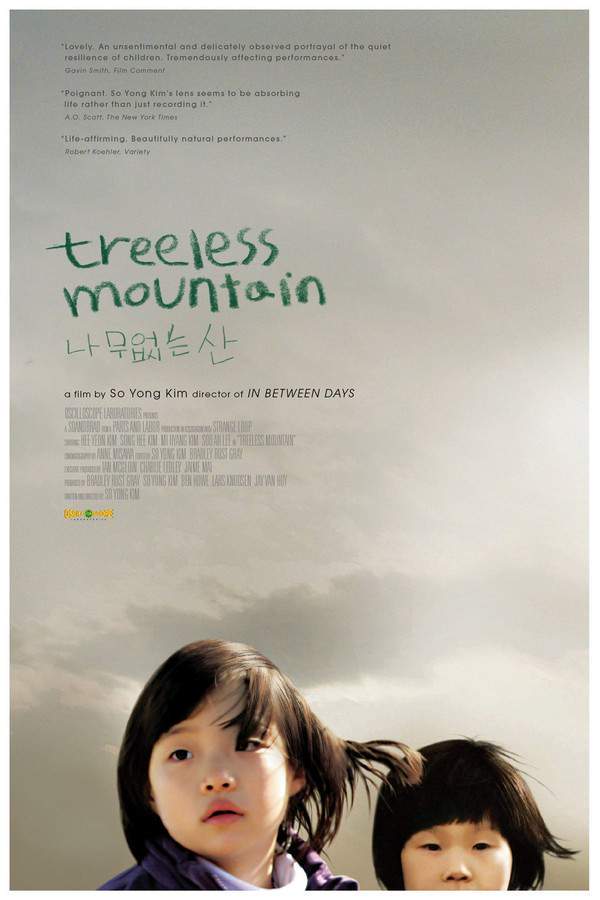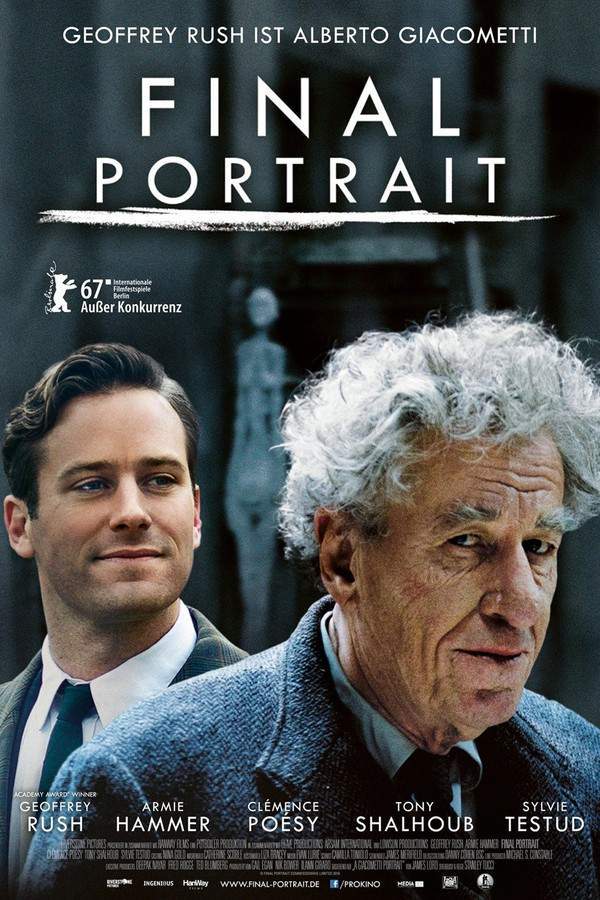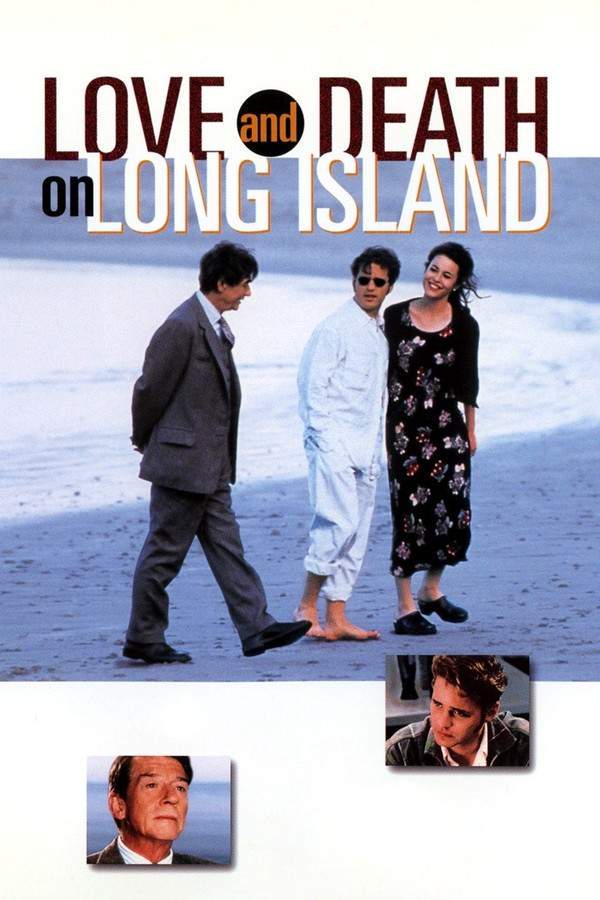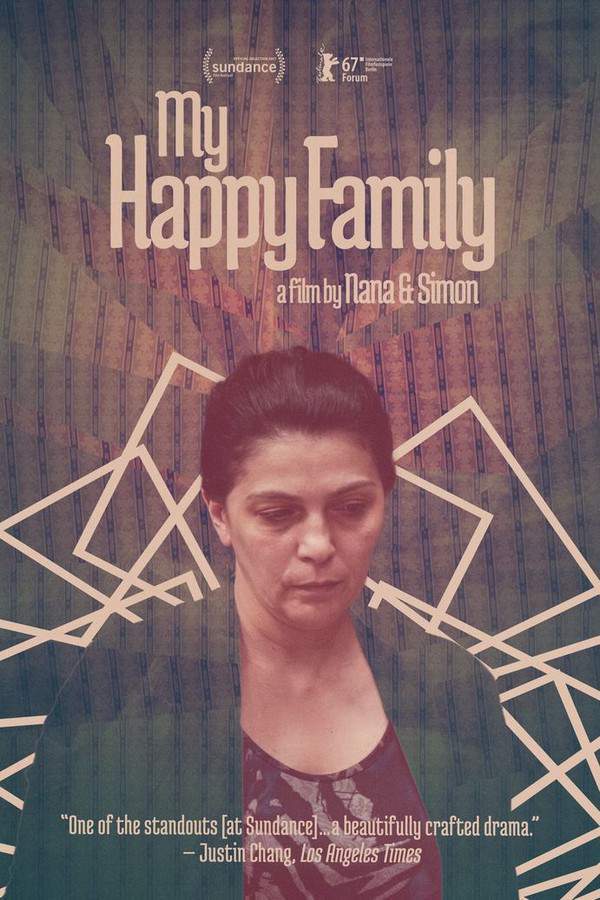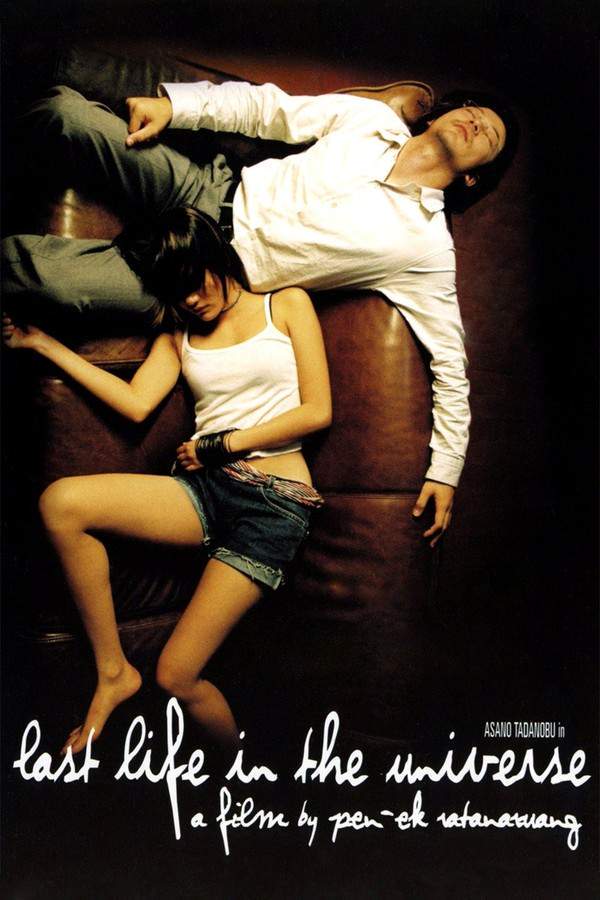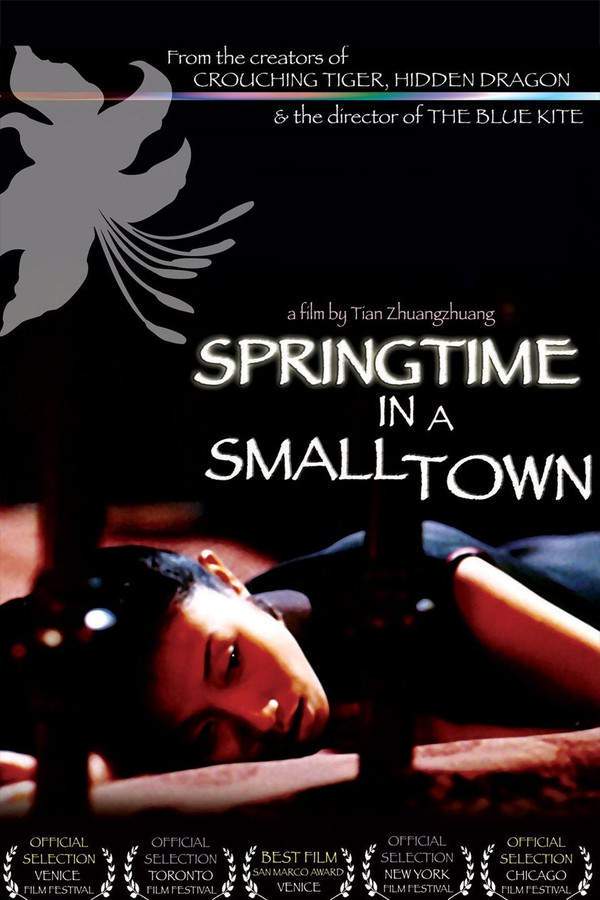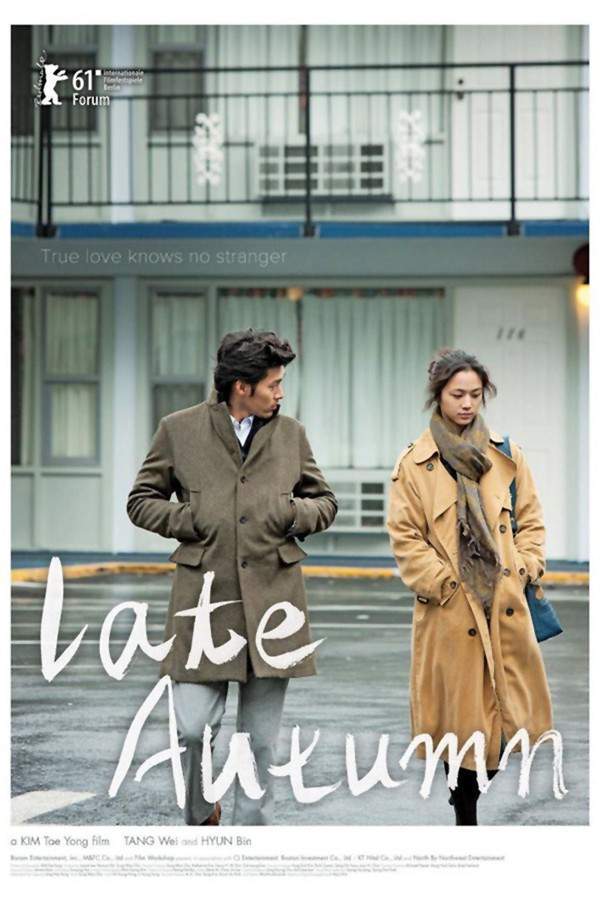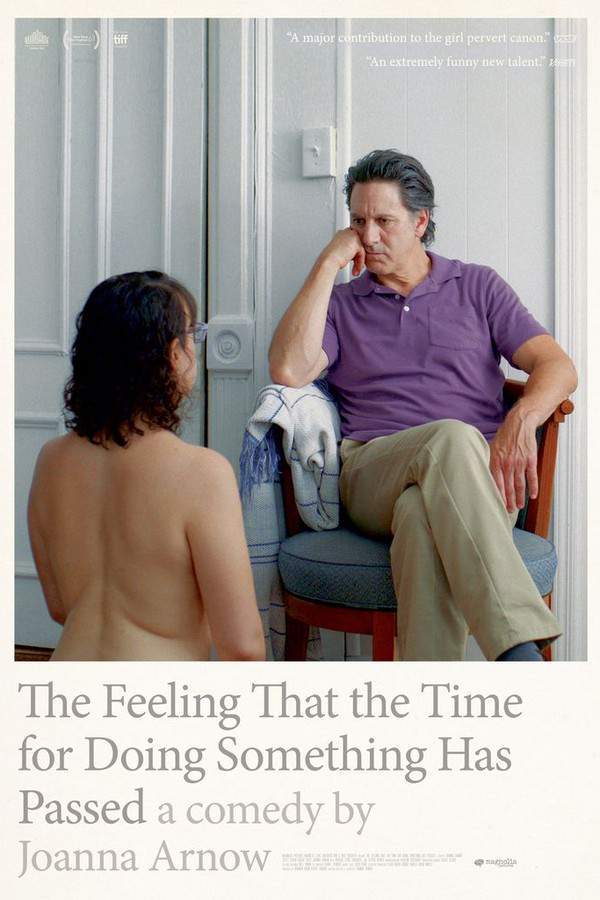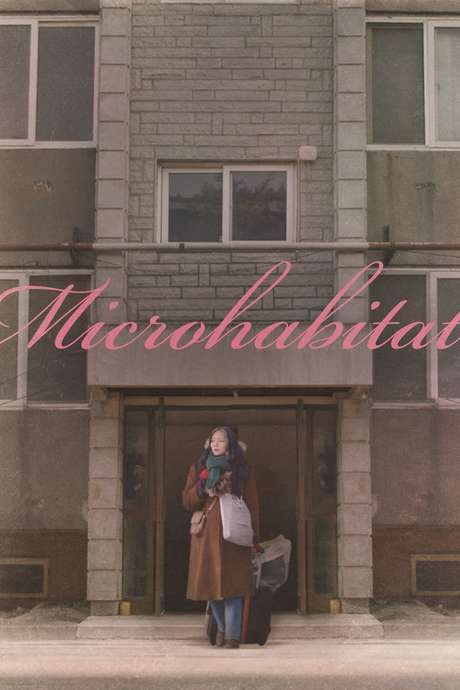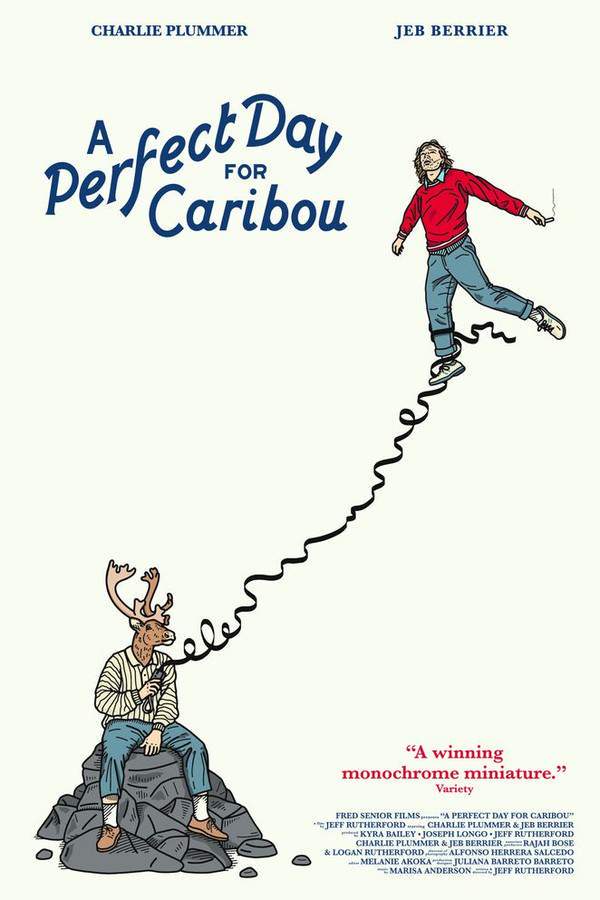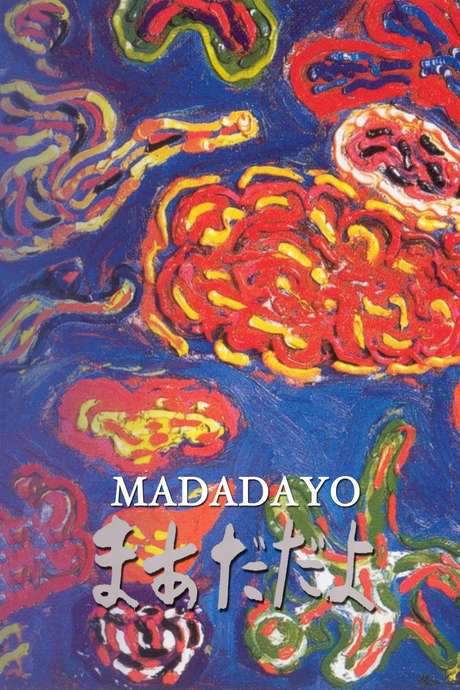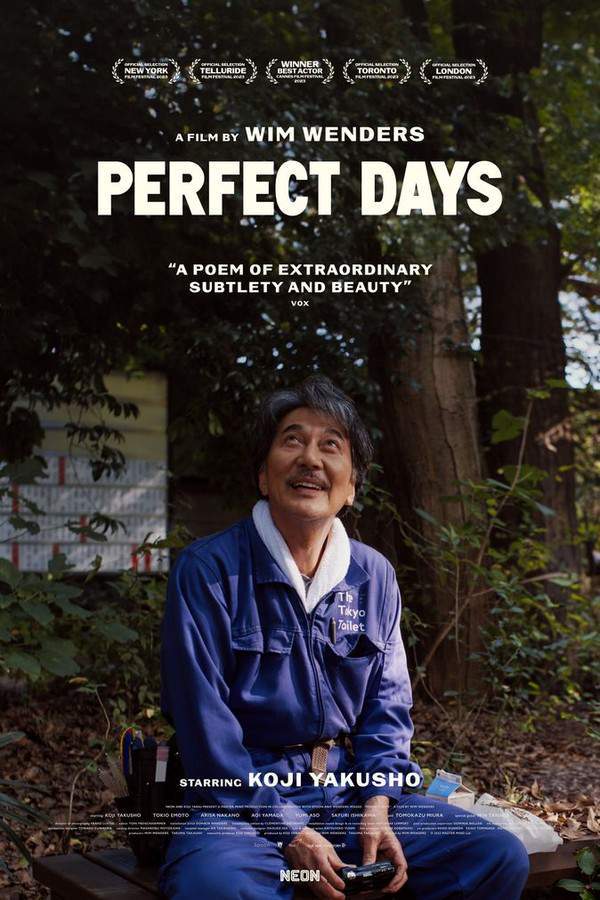
Perfect Days
Hirayama finds solace and purpose in his quiet life as a cleaner in Tokyo. His meticulous routine, filled with beloved books, music, and photography, is unexpectedly altered by new connections and unexpected events. Through these encounters, he begins to appreciate the subtle beauty of everyday moments and discovers a deeper understanding of himself and the world around him. It’s a gentle exploration of happiness found in simplicity.
Warning: spoilers below!
Haven’t seen Perfect Days yet? This summary contains major spoilers. Bookmark the page, watch the movie, and come back for the full breakdown. If you're ready, scroll on and relive the story!
Perfect Days (2023) – Full Plot Summary & Ending Explained
Read the complete plot breakdown of Perfect Days (2023), including all key story events, major twists, and the ending explained in detail. Discover what really happened—and what it all means.
In the bustling Shibuya ward of Tokyo, Hirayama diligently serves as a public toilet cleaner, showcasing an unwavering commitment to his work that highlights his meticulous nature. His home, situated across the Sumida River, feels worlds apart from the vibrant district he tends to daily. Rising with the dawn, Hirayama embarks on a structured routine that includes indulging in his love for music cassettes while commuting in his van. His literary tastes lean towards the works of noted authors like William Faulkner and Patricia Highsmith, alongside philosophical essays by Aya Kōda, providing him solace through their profound insights. As twilight descends, Hirayama’s dreams unfold like impressionistic images, hinting at the depth of his inner struggles.
In his spare moments, Hirayama finds joy in nurturing his cherished trees, capturing the ephemeral beauty of komorebi (木漏れ日) — the delicate interplay of sunlight filtering through leaves — with his camera. His respect for nature’s artistry is apparent in the careful attention he gives to these living masterpieces. Conversely, his assistant, Takashi, often disrupts the tranquility of their environment with his tardiness and boisterous demeanor, much to Hirayama’s annoyance. However, fate takes a turn when Takashi encounters a young woman named Aya at their workplace, setting off a chain of events that profoundly affect Hirayama’s life.
The recklessness of Takashi’s lateness leads him to rush through his tasks, prompting him to borrow Hirayama’s van in a moment of desperation. Unbeknownst to him, this act will trigger repercussions that neither he nor Hirayama could foresee. After realizing the worth of Hirayama’s treasured music cassettes, Takashi attempts to persuade his boss to part with them, only to be met with resolute refusal. As time trudges on, Hirayama finds himself at a crucial juncture, contemplating the true nature of his life and the choices he faces.
Amid these turbulent changes, Hirayama engages in a spontaneous game of tic-tac-toe with a stranger, each move revealing strategies that echo the unpredictability of life. In these moments of quiet introspection, he steals glances at a mysterious woman who seems to symbolize the deeper possibilities of existence, hinting at a life beyond his well-ordered daily routine. When Aya returns Hirayama’s Patti Smith cassette, she requests one last ride in his van, her gentle kiss on his cheek leaving him visibly unsettled. Following this interaction, Hirayama immerses himself in self-care, dedicating time to laundry, film development, and new literary adventures. He even dines at a local eatery, where the warmhearted proprietor shares tantalizing gossip, providing a stark contrast to the turmoil brewing within him.
Out of the blue, Niko, Hirayama’s niece, arrives at his doorstep, having fled from the lavish yet stifling surroundings of her estranged mother, Keiko. Graciously, Hirayama welcomes Niko, introducing her to the beauty of their surroundings by taking her to work with him. Together, they share joy-filled moments capturing the park’s arboreal splendor and riding bicycles — experiences that strengthen their familial bond.
However, the fleeting joy is soon overshadowed when Keiko arrives in a luxurious car, her sorrowful demeanor signaling the gravity of her visit: their father’s condition has tragically declined due to dementia, stripping him of the ability to recognize those he once loved. This revelation devastates Hirayama, his heartbreak spilling forth in a torrent of tears, rendering him vulnerable.
The difficulties compound when Takashi abruptly resigns, leaving Hirayama to shoulder the burden amidst his already fragile emotional state. Seeking solace in familiar surroundings, he visits his favorite restaurant, only to stumble upon a heartbreaking reality — the proprietor reconnecting with a man she hasn’t seen in years. Overwhelmed, Hirayama retreats, seeking refuge by the riverbank with cigarettes and canned drinks in hand.
In a moment of serendipity, Hirayama encounters a stranger who shares his cigarette, unfolding a conversation that reveals the truth about the restaurant’s owner: she is his ex-wife. The man implores Hirayama to take care of her as he faces his own cancer diagnosis, a conversation that imbues Hirayama with a fleeting sense of purpose as they part ways.
As dawn breaks on a new workweek, Hirayama is greeted by the soothing sounds of Nina Simone’s Feeling Good, a balm for his troubled heart. Driving through the city’s streets, the conflict of emotions — grief, sorrow, and regret — plays across his face, highlighting the profound reckoning that awaits him. It becomes undeniable that Hirayama’s world stands on the brink of transformation, compelling him to confront the core of his human experience.
Last Updated: November 17, 2024 at 17:42
Ending Explained – What Happens at the End of Perfect Days?
Still wondering what the ending of Perfect Days (2023) really means? Here’s a spoiler-heavy breakdown of the final scene, major twists, and the deeper themes that shape the film’s conclusion.
The ending of Perfect Days reveals the depth of Hirayama’s inner peace and acceptance of his simple life. As he watches the sunrise, he plays Nina Simone’s “Feeling Good,” a choice that symbolizes his liberation and contentment with the life he’s crafted for himself. The tears that surface show he has experienced struggles and emotional complexities that he has managed to reconcile within himself. Throughout the film, Hirayama’s routine—his appreciation for mundane beauty, his solitary moments, and his small acts of kindness—have all led to this quiet but profound fulfillment. His decision to live outside society’s expectations, to find joy in the routine and the small moments, culminates in his sense of genuine happiness. The film suggests that true freedom and peace come from embracing life as it is, in the present moment, rather than chasing after societal ideals of success. Ultimately, Hirayama’s peaceful smile and the tears in his eyes remind us that happiness is often found in simplicity and acceptance, making his life story a gentle ode to everyday beauty and the quiet power of being truly at peace with oneself.
Last Updated: June 25, 2025 at 08:44
Explore Movie Threads
Discover curated groups of movies connected by mood, themes, and story style. Browse collections built around emotion, atmosphere, and narrative focus to easily find films that match what you feel like watching right now.
Meditative Movies Like Perfect Days
Stories that find profound meaning and beauty in simple, daily routines.If you enjoyed the quiet, contemplative beauty of Perfect Days, you'll appreciate these movies that also find profound meaning in everyday life. This collection features similar gentle dramas where the plot is secondary to capturing the essence of a character's routine and inner world.
Narrative Summary
These stories often follow a character deeply immersed in a solitary or repetitive lifestyle. The narrative is less about major external events and more about the internal shifts that occur when small disruptions or observations challenge their peaceful existence, leading to subtle but significant personal growth.
Why These Movies?
They are grouped by their shared low-intensity, slow-paced, and melancholic tone, prioritizing atmosphere and character introspection over complex plotting. The emotional journey is one of quiet appreciation and subtle transformation.
Movies About Solitude and Connection Like Perfect Days
Characters living in self-imposed isolation find their world cracked open by new connections.For viewers who liked the theme of solitude and reconnection in Perfect Days, this list features similar movies where a lone character's insulated world is changed by new relationships. These stories explore the bittersweet process of opening up after a period of isolation.
Narrative Summary
The narrative pattern follows a protagonist who is content, or at least settled, in their solitary existence. An external force—a new person, a piece of news, or a revisited memory—creates a ripple in their calm life. The story traces their hesitant, often ambiguous, journey toward re-engaging with others and themselves.
Why These Movies?
They share a focus on the emotional arc of a solitary character, blending melancholic tones with moments of gentle hope. The pacing is typically slow to allow for deep character immersion, and the endings often feel ambiguous, reflecting the ongoing nature of personal change.
Unlock the Full Story of Perfect Days
Don't stop at just watching — explore Perfect Days in full detail. From the complete plot summary and scene-by-scene timeline to character breakdowns, thematic analysis, and a deep dive into the ending — every page helps you truly understand what Perfect Days is all about. Plus, discover what's next after the movie.
Perfect Days Timeline
Track the full timeline of Perfect Days with every major event arranged chronologically. Perfect for decoding non-linear storytelling, flashbacks, or parallel narratives with a clear scene-by-scene breakdown.

Characters, Settings & Themes in Perfect Days
Discover the characters, locations, and core themes that shape Perfect Days. Get insights into symbolic elements, setting significance, and deeper narrative meaning — ideal for thematic analysis and movie breakdowns.

Perfect Days Ending Explained
What really happened at the end of Perfect Days? This detailed ending explained page breaks down final scenes, hidden clues, and alternate interpretations with expert analysis and viewer theories.

Perfect Days Spoiler-Free Summary
Get a quick, spoiler-free overview of Perfect Days that covers the main plot points and key details without revealing any major twists or spoilers. Perfect for those who want to know what to expect before diving in.

More About Perfect Days
Visit What's After the Movie to explore more about Perfect Days: box office results, cast and crew info, production details, post-credit scenes, and external links — all in one place for movie fans and researchers.

Similar Movies to Perfect Days
Discover movies like Perfect Days that share similar genres, themes, and storytelling elements. Whether you’re drawn to the atmosphere, character arcs, or plot structure, these curated recommendations will help you explore more films you’ll love.
Explore More About Movie Perfect Days
Perfect Days (2023) Scene-by-Scene Movie Timeline
Perfect Days (2023) Movie Characters, Themes & Settings
Perfect Days (2023) Ending Explained & Theories
Perfect Days (2023) Spoiler-Free Summary & Key Flow
Movies Like Perfect Days – Similar Titles You’ll Enjoy
Departures (2009) Spoiler-Packed Plot Recap
A Perfect Day for Caribou (2024) Movie Recap & Themes
In Perfect Health (2017) Ending Explained & Film Insights
Perfect Crime (1000) Full Movie Breakdown
Perfect World (1000) Plot Summary & Ending Explained
A Perfect Day (2005) Plot Summary & Ending Explained
Every Day a Good Day (2018) Plot Summary & Ending Explained
The Days Between (2001) Spoiler-Packed Plot Recap
Perfect Propose (1000) Complete Plot Breakdown
Madadayo (1993) Story Summary & Characters
Perfect Understanding (1933) Film Overview & Timeline
The Perfect Human (1968) Detailed Story Recap
Perfect (2009) Story Summary & Characters
Beautiful Days (1955) Detailed Story Recap
My Rainy Days (2009) Plot Summary & Ending Explained


